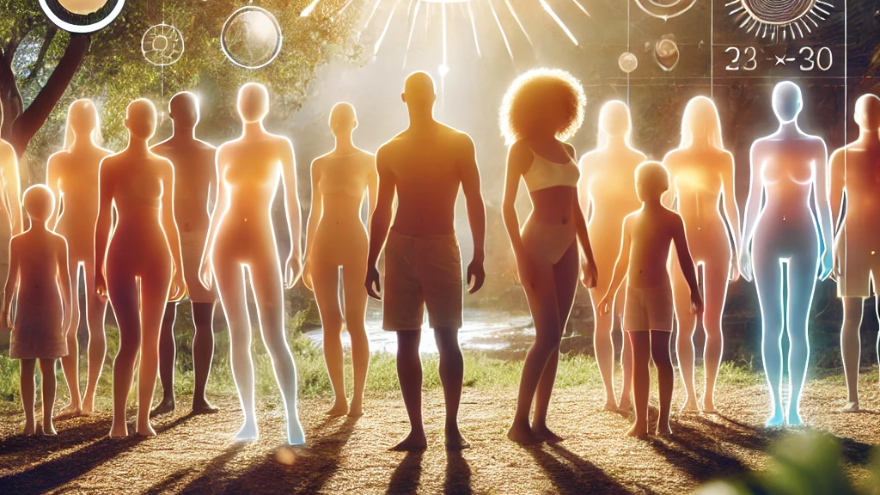Ever wondered if your skin color affects how you feel the heat? This article clears up the confusion and explains the science behind heat tolerance. Learn the truth about how skin color affects heat sensitivity. Discover why people with darker skin may actually be more resistant to heat-related illnesses.

This is for informational purposes only. For medical advice or diagnosis, consult a professional.
The perception or experience of heat can vary between individuals, but there is no scientific evidence to suggest that people with darker skin feel heat more acutely than others solely because of their skin color. Here are a few factors that might influence this perception:
Darker skin contains more melanin, which provides some protection against UV radiation but can absorb more sunlight compared to lighter skin. This might make darker-skinned individuals feel warmer in direct sunlight.
However, this effect is usually minimal and not a significant determinant of how someone feels in the heat.
People living in hotter climates, regardless of their skin color, often adapt physiologically and behaviorally to heat over time.
Socioeconomic factors, such as access to air conditioning or cooling resources, might influence an individual’s perception of heat and comfort levels.
All humans, regardless of skin color, have roughly the same density of sweat glands. The ability to regulate body temperature through sweating is not significantly affected by skin color.
Heat sensitivity is a subjective experience and can be influenced by personal tolerance, hydration levels, health conditions, or acclimatization to hot environments.
It's a common misconception that people with darker skin tones feel the heat more than those with lighter skin tones. While it's true that darker skin absorbs more heat from the sun, the body's cooling mechanisms, like sweating, are equally effective regardless of skin color. In fact, studies have shown that people with darker skin may actually be more resistant to heat-related illnesses due to their ability to dissipate heat more efficiently.
It's important to remember that everyone experiences heat differently, and factors like age, overall health, and hydration level also play a role in heat tolerance.
If you're concerned about heat-related health risks, it's always best to consult with a healthcare professional for personalized advice.
In summary, there is no inherent biological reason for Black people to feel the heat more than others. Perceptions of heat are influenced by a complex interplay of environmental, cultural, and individual factors.